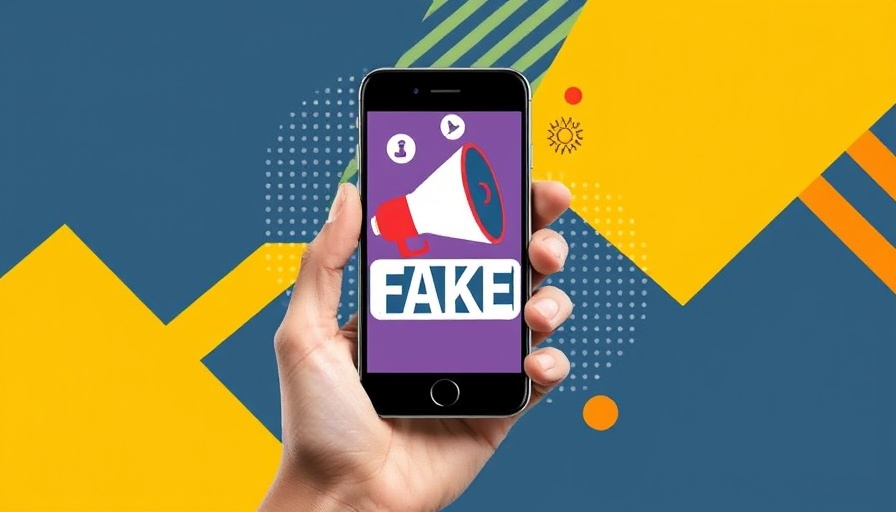
The Battle Against Misinformation in the Digital Age
In an era where information travels at lightning speed, the rising tide of misinformation on social media presents a unique challenge for professionals, business owners, and marketers alike. With AI technologies advancing rapidly, misinformation is not only more prevalent but also harder to combat. Understanding the implications of these trends is crucial in navigating the complexities of digital marketing and maintaining consumer trust.
Why Misinformation Matters for Marketers
The consequences of misinformation extend far beyond mere confusion. For brands, the spread of incorrect information can damage reputation, erode customer loyalty, and negatively impact sales. In fact, nearly 63% of consumers say they need to trust a brand before making a purchase. This underscores the importance of addressing misinformation directly, especially on platforms where engagement is key.
AI: A Double-Edged Sword in Misinformation
AI technologies can both propagate and combat misinformation. On one side, AI algorithms can amplify false content through automated sharing, making it viral in moments. Conversely, AI is also being utilized to identify and flag false information before it gains traction. Companies are increasingly relying on AI-driven analytics to monitor social media conversations, aiming to catch and rectify misinformation early. For marketers, leveraging AI tools to filter out misinformation can enhance brand credibility and foster deeper customer engagement.
The Role of Data in Combatting Misinformation
Data-driven marketing strategies are essential in the fight against misinformation. By employing rigorous analytics and data reporting tools, businesses can gain insights into consumer perceptions and identify patterns of misinformation that affect their audience. This proactive approach helps brands develop tailored communication strategies, clarifying misconceptions and ensuring that accurate information prevails. Marketers can utilize tools like social media analytics to measure sentiment and engagement, allowing them to adjust their strategies accordingly.
Effective Crisis Communication Strategies
The key to addressing misinformation lies in effective communication. When misinformation arises, businesses must act quickly to clarify their stance and provide factual information. This can involve utilizing digital PR strategies to disseminate accurate information across multiple channels, including social media, email campaigns, and press releases. Engaging with consumers transparently and authentically during a misinformation crisis not only preserves trust but strengthens relationships in the long run.
The Future of Misinformation in Marketing
As we look ahead, it’s clear that misinformation will remain a significant challenge for marketers. With predicted trends emphasizing the integration of AI in digital marketing, businesses will need to adapt to an evolving landscape. Experts believe that as technology evolves, so will the tactics used to combat misinformation, making it essential for marketers to stay informed and ready to implement innovative solutions.
Actionable Insights for Marketers
In order to thrive in this complex environment, marketers should adopt several estratégias:
- Enhance Brand Transparency: Regularly communicate the brand’s values and services to counteract misinformation.
- Leverage Technology: Utilize AI-driven analytics tools to monitor misinformation and gather insights.
- Engage Authentically: Foster trust through open dialogue with consumers and address misinformation directly.
Why Your Engagement is Vital
Understanding the implications of misinformation in marketing and taking proactive steps can enhance your brand's reputation and strengthen customer relationships. Stay informed, engage with your audience genuinely, and be prepared to combat the dynamics of misinformation as it evolves.
 Add Row
Add Row  Add
Add 




Write A Comment